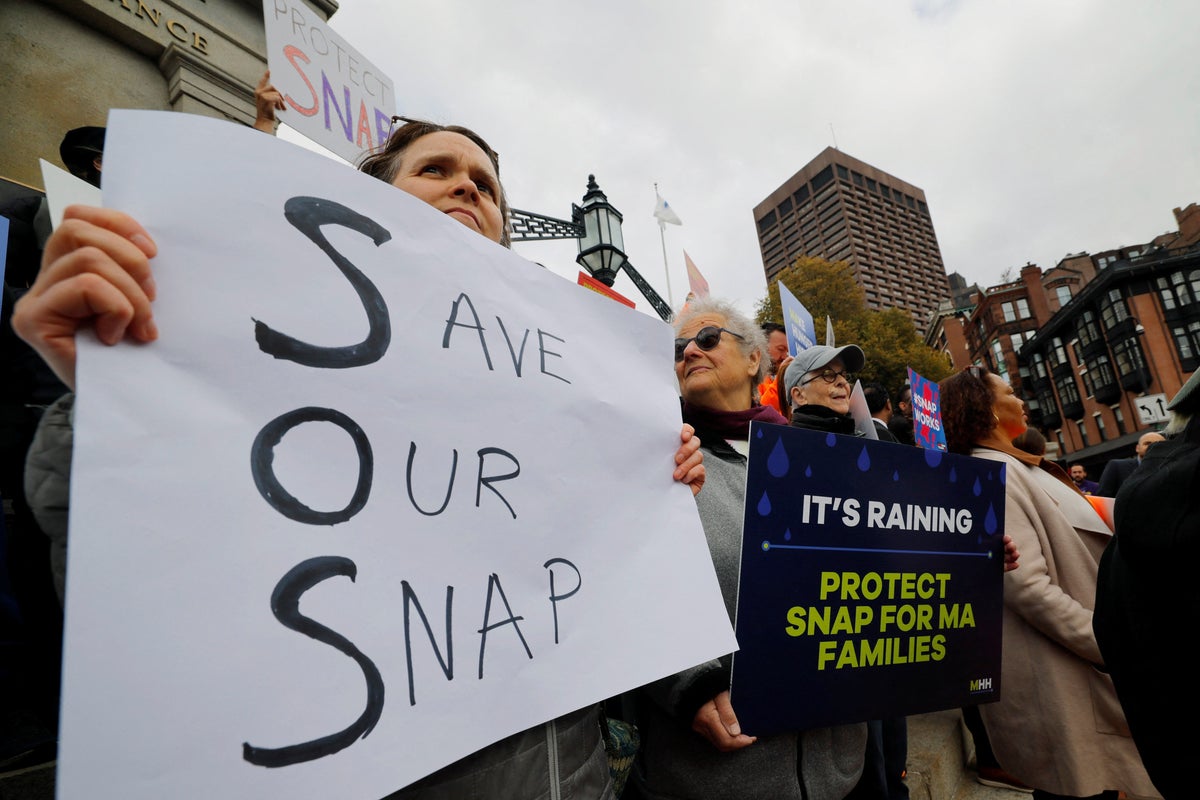
Nearly 42 million Americans and their families could imminently lose access to federal food assistance if Donald Trump’s administration does not tap into billions of dollars in emergency funding to keep the critical program afloat during the government shutdown.
Democratic leaders from 25 states are now suing the administration to keep those dollars flowing, arguing that the Department of Agriculture is legally required to continue providing Supplemental Nutrition Assistance Program (SNAP) benefits as long as there is money to support it.
“Millions of Americans are about to go hungry because the federal government has chosen to withhold food assistance it is legally obligated to provide,” said New York Attorney General Letitia James, who is among 25 attorneys general suing the Trump administration to keep SNAP running.
“SNAP is one of our nation’s most effective tools to fight hunger, and the USDA has the money to keep it running,” she said. “There is no excuse for this administration to abandon families who rely on SNAP, or food stamps, as a lifeline. The federal government must do its job to protect families.”
A notice on USDA’s website this week claims “the well has run dry” for SNAP benefits and states “there will be no benefits” come November 1.
But the government was preparing for an emergency plan, as outlined in a September memo, which said the agency would tap into a multiyear contingency to continue supporting SNAP in the event funding came to a screeching halt.
That document was recently removed from the USDA website, and a follow-up memo now claims USDA’s contingency funding was “not legally available to cover regular benefits.”
Plaintiffs claim the federal government is illegally blocking those funds, which should cover “at least a significant portion of November SNAP benefits based just on the $6 billion in SNAP-specific contingency funds.”
USDA claims that those funds were earmarked for natural disasters and other emergencies, not in the event of an impasse in Congress over a funding bill to reopen the government.
The USDA, echoing a recent wave of partisan attacks on government websites, is explicitly blaming congressional Democrats for the shutdown and the suspension of SNAP funding.
“Bottom line, the well has run dry,” according to the latest notice on its website. “At this time, there will be no benefits issued November 1. We are approaching an inflection point for Senate Democrats.”
If SNAP benefits are suspended this weekend, it would mark the first time in the program’s 60-year history that the federal government had let it lapse.
Withholding emergency funds is “illegal, immoral, and cruel,” according to Chris Swartz, senior ethics counsel at legal advocacy group Democracy Defenders Fund.
USDA Secretary Brooke Rollins “has both the authority and the legal obligation to act,” the group’s chief counsel and director for ethics and anticorruption Virginia Canter said.
“Congress created the SNAP contingency fund precisely to prevent hunger during funding lapses,” she added. “Choosing not to use it is a deliberate decision to deny food to 42 million Americans who are legally entitled to those benefits, including the elderly, children, and veterans.”
SNAP funds, which are distributed by the federal government to states each month, support the nation’s largest anti-hunger program, which serves millions of households, with a vast majority of recipients being children and seniors.
Recipients receive roughly $188 per person per month, or about $6 per day, which is administered on prepaid cards that can be used for grocery store staples.
The program provides roughly nine meals for every one meal provided by a food pantry, according to anti-hunger advocates.
More than 3 million people in New York alone rely on SNAP, as do tens of thousands of people in states with some of the highest poverty levels in the country.
“Tens of millions” of Americans “are on the cusp of crisis,” according to the lawsuit. “Every day that this suspension of SNAP benefits is not enjoined is another day that critical food assistance does not go out to families who need it.”
Suspending funds risks “burdening the state agencies that administer SNAP and the state and local programs that will need to compensate for the lack of SNAP benefits,” according to the lawsuit.
State governments and food banks are now warning SNAP recipients that those funds could soon be coming to an end, for now.
A hearing in the lawsuit is set for October 30.
